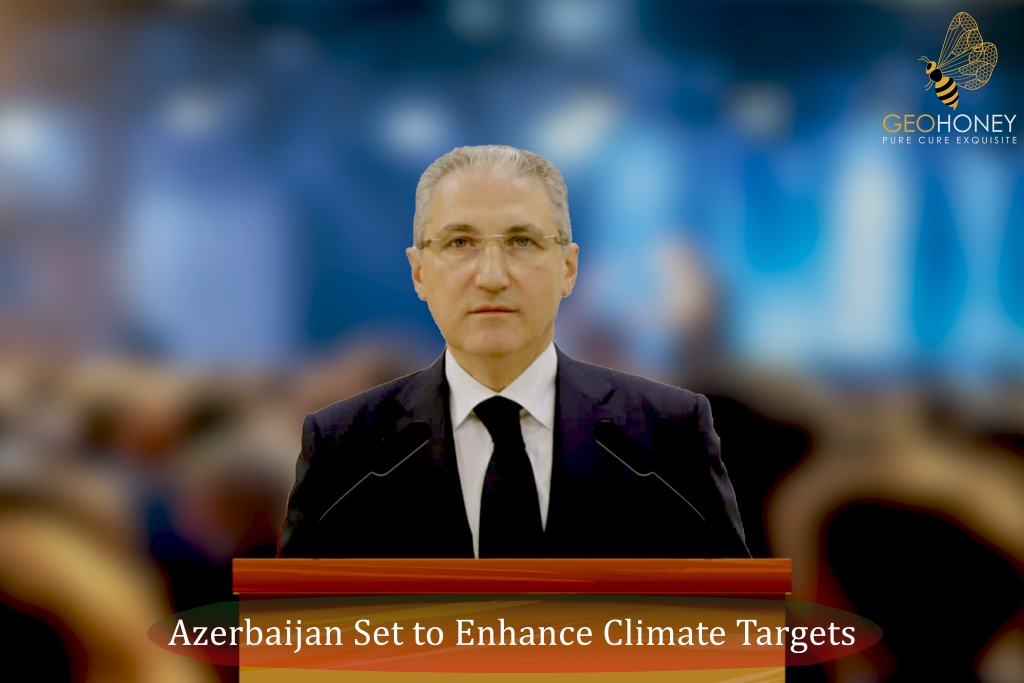- Tokyo: 10:58
- Singapore: 09:58
- Dubai: 05:58
- London: 01:58
- New York: 20:58
Azerbaijan Set to Enhance Climate Targets as COP29 Host

In a bid to align with global climate goals, Azerbaijan, a nation heavily reliant on oil and gas exports, is gearing up to revise its climate commitments ahead of hosting the upcoming COP29 summit in Baku. The current targets, aiming for a 35% reduction in greenhouse gas emissions by 2030 and 40% by 2050 compared to 1990 levels, fall short of the ambitious net zero target required by scientists to mitigate the severe impacts of climate change.
Mukhtar Babayev, the Minister of Ecology and Natural Resources, revealed that Azerbaijan is in the early stages of exploring updates to its national climate action plan, known as the Nationally Determined Contributions (NDC). Speaking at a conference in London, Babayev emphasized the importance of this opportunity for Azerbaijan and all nations to unveil enhanced NDCs during the summit in November.
The move by Azerbaijan comes in response to a call by Simon Stiell, the Executive Secretary of the United Nations Framework Convention on Climate Change, urging countries to strengthen their climate commitments up to 2035, enhance emissions reduction targets for 2030, and allocate more funding for climate initiatives. Stiell highlighted the critical role of revised NDCs and 2030 targets in steering the world towards a trajectory that aligns with limiting global temperature rise to 1.5°C as outlined in the Paris Agreement.
Despite facing criticism for his ties to the oil and gas industry, Babayev expressed Azerbaijan's commitment to diversifying its energy mix by increasing the share of renewable sources to 30% by 2030. The country, abundant in untapped wind and solar resources, currently relies heavily on fossil fuels for energy production. Babayev has initiated discussions with various stakeholders to secure additional financing aimed at supporting developing nations in transitioning to cleaner energy sources.
The COP29 summit in Baku is poised to be a pivotal moment in the global fight against climate change, testing governments' resolve following recent elections in key countries. With COP29 serving as a deadline for countries to establish a new global climate finance target to assist vulnerable nations in addressing climate challenges, the pressure is on for nations to step up their commitments. While last year's COP28 summit marked progress with the agreement to shift away from fossil fuels, the full phase-out sought by numerous countries remained elusive.
Source: usnews



